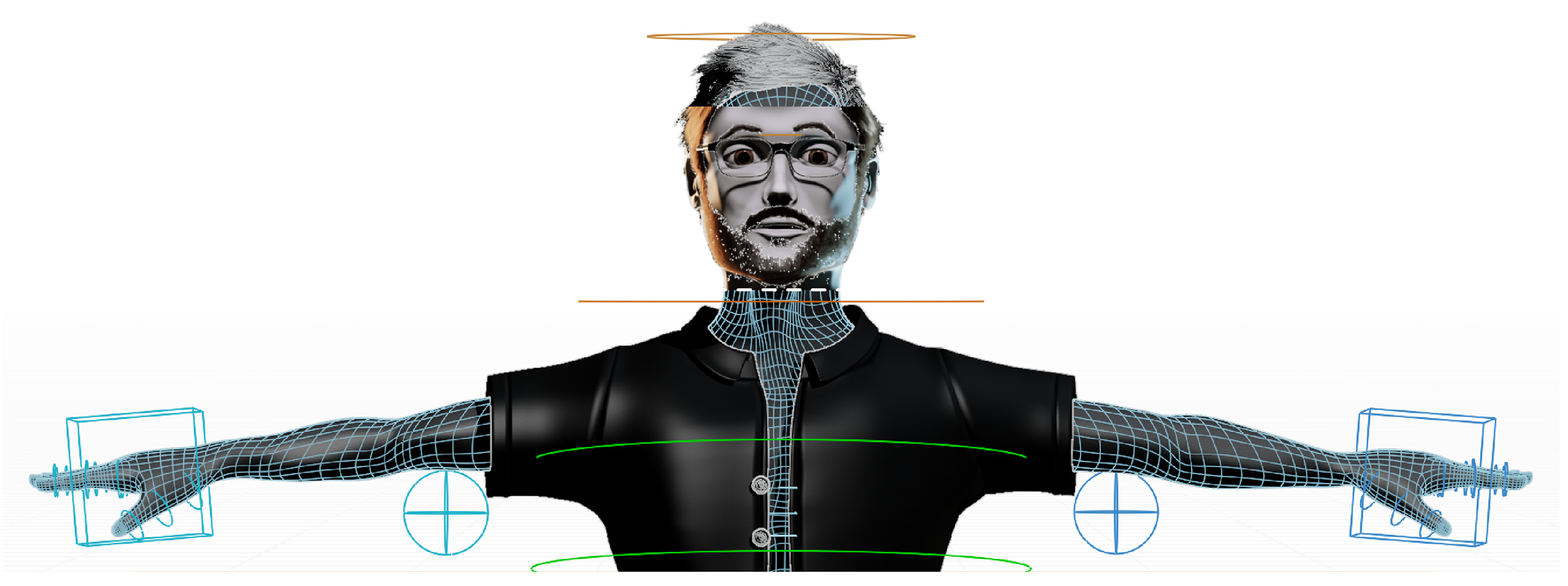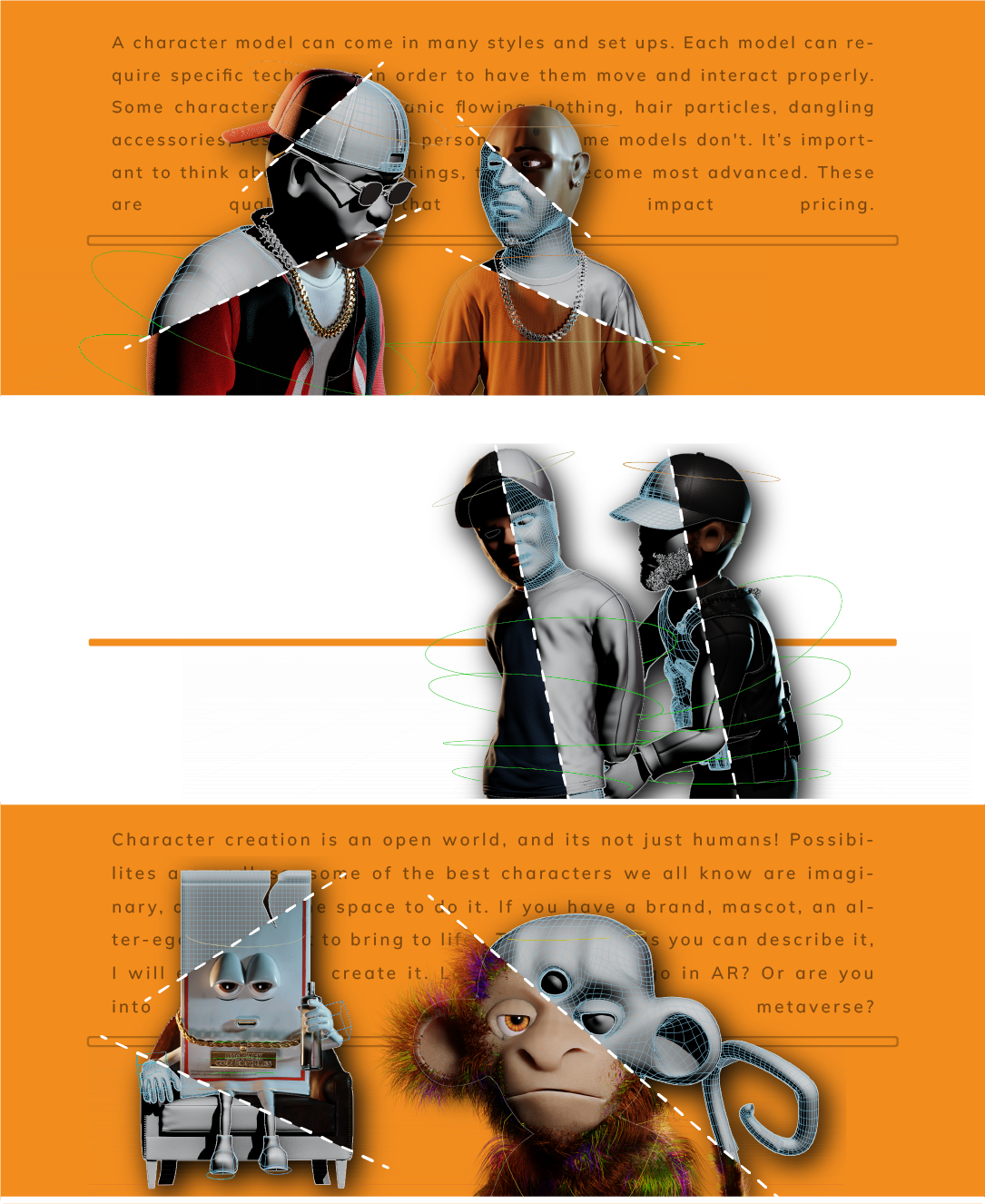Character
Modeling

Character modeling is one of the main components in the 3D space. They can be created for the specific project at hand, used for future projects, and can be exported to be used by other animators and artists! The main steps in creating a character are modeling, materials and texturing, then rigging for animation.

If you would like to read more about the main steps in character creation, check it out here!
This is the base step. The character will start from a
cube (basically a block of clay). This is where I start shaping the head
(using reference photos if needed), then basic proportions of the
face. Once I'm set with the base head, I`ll connect it to the
body. I will then go
back with more shaping to get the body type I am looking for,
adding more resemblance and personality of
the character. This process of character creation can
take me 1-3 days to complete.
*Remember playing with play-doh or clay? That's me on the
computer.
This is where we add everything like skin color,
tattoos, freckles, imperfections. Clothing requires different types of
fabrics from polyester to a silk or satin. In order for all of this to
look correct (no distorting or stretching) I have to go into "UV Mapping".
[UV Mapping]: For textures to lay correctly on an object, the
mesh framework needs to be unwrapped. Picture a globe in front
of you. In order to make a flat map of it, you need to add a split that
allows the sphere to open and lay flat without warping any of the imagery.
Now that the character is modeled and textured,
we can create a "rig" to control the character. A rig is the
skeleton of the model. To make the character walk it needs
bones, then I animate each bone to create a walk cycle. A
single rig can be used for multiple characters, as long as they are the
same type of being. A dog has a different rig than a human for instance.
The creation of a rig will not usually impact
pricing or workflow. But there are times when a specifically required
rig is needed. Maybe for a snake, or some type of alien lifeform. Either
way they need to be individually applied to each character, with
different steps depending on the model.
This is where we add motion and bring the characters to life.
Using the rig that is now set to the character, we can animate using
keyframes to que each position during the timeline.
*If you want your character to punch, I need to animate their
fingers to curl into a ball, raise their fist, throw their arm
forward, then everything within the impact and retreat of their fist. That's
just the arm, the whole body needs to be animated to
sell the realism of the punch. The twisting hips, bending neck,
squinting eyes, etc... OH and are they punching another character?
The punched person needs to be animated as well, receiving the blow.
This is the longest portion of character creation. Depending on what is being
animated, the amount of hours needed to complete can add up
quickly. It is much simpler to have a character walking,
than to be sprinting. And so on, as sprinting is less complex than a fight
scene.
Animation is a major area to think about when considering the budget and
time frame needed to be complete.